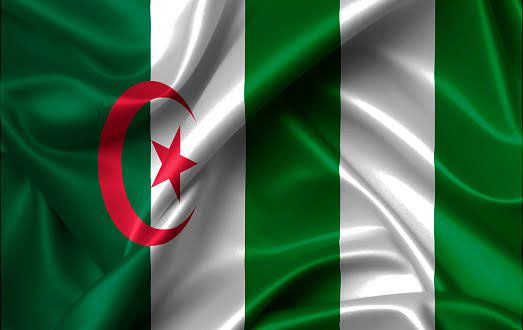Despite being situated in different regions of Africa, Algeria and Nigeria share several commonalities. Both countries are rich in culture, history, and natural resources, and have faced their fair share of struggles. As diverse as these two nations are, there is one key similarity between them that stands out: their status as major oil and gas producers in Africa. This article will delve into the details of this similarity, discussing how the oil and gas industry has shaped their economies, populations, and global standing.
What is One Similarity Between Algeria and Nigeria?
One similarity between Algeria and Nigeria is that both countries are the largest oil and gas producing countries in Africa.
Algeria and Nigeria: Oil and Gas Powerhouses
Algeria, located in North Africa, and Nigeria, situated in West Africa, are two of the largest oil and gas producing countries on the African continent. They are both members of the Organization of the Petroleum Exporting Countries (OPEC), with Nigeria joining in 1971 and Algeria in 1969. This commonality has had a significant impact on their respective economies and has drawn them closer together in terms of trade and cooperation.
The Oil and Gas Industry in Algeria
Algeria ranks as the third-largest oil producer in Africa and holds the 16th position globally. The country’s oil production began in the late 1950s, and it has since grown to become a major player in the industry. Algeria’s most significant oil reserves are found in the Berkine Basin and Hassi Messaoud field.
However, Algeria’s real strength lies in its natural gas reserves. The country is the 10th largest natural gas producer globally and has the third-largest natural gas reserves in the world. The Hassi R’Mel gas field is the most significant gas field in Algeria and one of the largest in the world.
The Oil and Gas Industry in Nigeria
Nigeria is the largest oil producer in Africa and ranks 13th in the world. Oil production in Nigeria started in the late 1950s, and since then, the country has become a major player in the global oil market. The Niger Delta region contains the majority of Nigeria’s oil reserves, with the largest oil fields being Bonny, Forcados, and Bonga.
In addition to oil production, Nigeria is also a significant player in the natural gas market. The country ranks as the 9th largest natural gas reserves globally and is the largest in Africa. The Niger Delta region also contains the majority of Nigeria’s natural gas reserves, with the most significant gas fields being Utorogu, Odidi, and Oben.
Economic Impact of Oil and Gas
The oil and gas industry has had a significant impact on the economies of both Algeria and Nigeria. It has generated substantial revenue for both countries and has been the main driver of their economic growth.
In Algeria, oil and gas exports account for over 90% of the country’s export earnings and make up around 60% of the government’s budget. However, the industry’s dominance has made the country’s economy susceptible to fluctuations in global oil prices, which has led to periods of economic instability.
Likewise, in Nigeria, oil and gas exports account for over 90% of the country’s export earnings and make up a significant portion of the government’s budget. The industry’s dominance has also made Nigeria’s economy vulnerable to global oil price fluctuations, leading to economic instability during periods of low oil prices.
Cooperation between Algeria and Nigeria
Given their shared status as major oil and gas producers, Algeria and Nigeria have engaged in various cooperative endeavors in the energy sector. Both countries have participated in joint projects and initiatives aimed at boosting their oil and gas production capacities.
For example, Algeria and Nigeria have been cooperating on the Trans-Saharan Gas Pipeline project, which aims to transport Nigerian natural gas to Europe through Algeria. This pipeline, once completed, will help both countries diversify their export markets and increase their gas export revenues.
Conclusion
While Algeria and Nigeria are separated by geography, culture, and history, the common thread of being major oil and gas producers in Africa unites them. This shared characteristic has had a profound impact on their economies, populations, and global standing, and has provided a foundation for cooperation and mutual understanding between the two nations. As the world moves towards cleaner energy sources, it remains to be seen how Algeria and Nigeria will adapt their economies and leverage their vast oil and gas wealth to ensure a sustainable future for their people.
